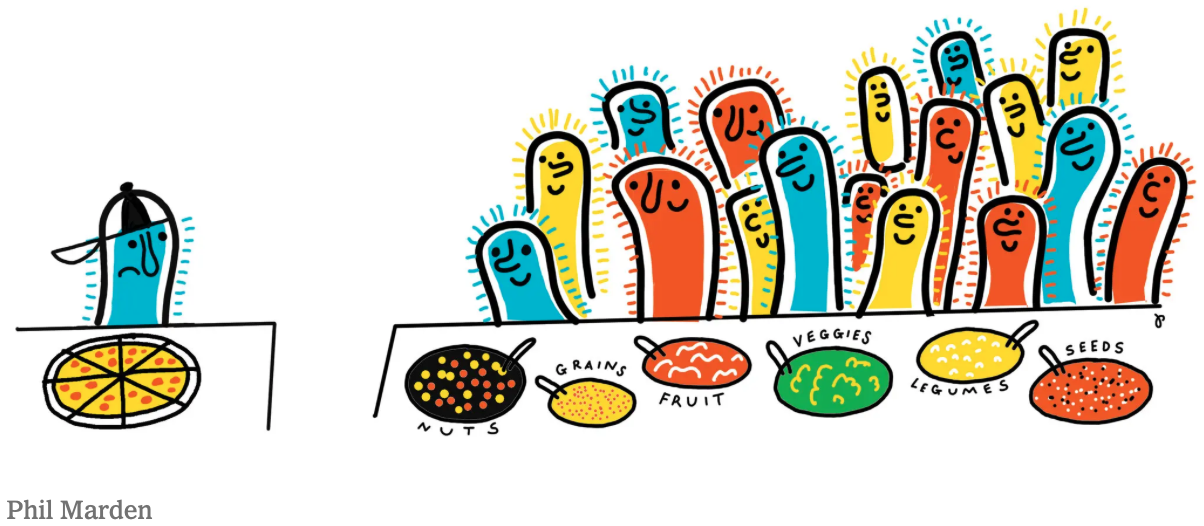Do you have allergies? Evidence continues to show that dietary habits affect gut health, and gut health affects your immune system. This research further reveals the complex and multifactorial regulatory mechanisms involving gastrointestinal microbiota, diet, and the immune system. Your body regulates your immune system with the help of your gut bacteria.
Take good care of your “gut bugs” and they will help take good care of you!
Abstract
Short-chain fatty acids (SCFAs) are produced by the intestinal microbiota during the fermentation of dietary fibers as secondary metabolites. Several recent studies reported that SCFAs modulate the development and function of immune-related cells. However, the molecular mechanisms by which SCFAs regulate mast cells (MCs) remain unclear. In the current study, we analyzed the function and gene expression of mouse MCs in the presence of SCFAs in vitro and in vivo. We found that the oral administration of valerate or butyrate ameliorated passive systemic anaphylaxis and passive cutaneous anaphylaxis in mice. The majority of SCFAs, particularly propionate, butyrate, valerate, and isovalerate, suppressed the IgE-mediated degranulation of bone marrow–derived MCs, which were eliminated by the Gi protein inhibitor pertussis toxin and by the knockdown of Gpr109a. A treatment with the HDAC inhibitor trichostatin A also suppressed IgE-mediated MC activation and reduced the surface expression level of FcεRI on MCs. Acetylsalicylic acid and indomethacin attenuated the suppressive effects of SCFAs on degranulation. The degranulation degree was significantly reduced by PGE2 but not by PGD2. Furthermore, SCFAs enhanced PGE2 release from stimulated MCs. The SCFA-mediated amelioration of anaphylaxis was exacerbated by COX inhibitors and an EP3 antagonist, but not by an EP4 antagonist. The administration of niacin, a ligand of GPR109A, alleviated the symptoms of passive cutaneous anaphylaxis, which was inhibited by cyclooxygenase inhibitors and the EP3 antagonist. We conclude that SCFAs suppress IgE-mediated activation of MCs in vivo and in vitro involving GPR109A, PGE2, and epigenetic regulation.



